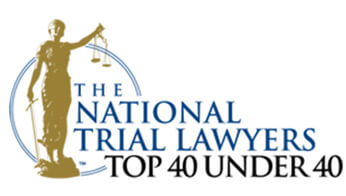Bronx White Collar Crime Lawyer

Bronx White Collar Crime Attorney
A white collar criminal offense is typically a non-violent crime that is done for financial gain. Although they are not violent crimes, they can still financially and personally affect many individuals, and these offenses are diligently investigated and prosecuted because of this. If you are facing an investigation or charges for white collar crimes, it is important not to take these lightly. In those situations, you need to secure the help of a Bronx white collar crime lawyer.
A white collar criminal conviction can result in serious criminal, civil, personal, and professional consequences. Some offenses are even charged on the federal level. You need a strong and knowledgeable legal defense to effectively combat these multifaceted allegations.
The Vitaliano Law Firm has worked for years in complex criminal defense cases, including those involving white collar crimes. With experience as both the prosecution and the defense, our firm is uniquely qualified to understand how these cases function and how to most effectively defend your rights against these criminal charges. Our team takes the time to understand your situation and find the right defense for your situation.
Common White Collar Criminal Offenses
If you are facing charges or an investigation for a white collar crime in the Bronx, you need to find an attorney with a strong background in that area of criminal defense. White collar crimes are uniquely complicated compared to other types of criminal offenses, so they require different resources to craft a defense. It is important that the firm and attorney you work with have experience and success in defending against white collar crime charges. They should also have the network of resources needed to properly defend your rights.
At The Vitaliano Law Firm, we have experience in some of the following areas of white collar offenses:
- Fraud: There are multiple types of fraud that are considered white collar crimes. These include credit card fraud, wire fraud, mail fraud, check fraud, healthcare fraud, mortgage fraud, and investment fraud.
- Forgery: There are several types of forgery, including forgery of important documents, forgery of someone else’s signature, or forgery through incorrectly filling out forms.
- Pyramid and Ponzi Schemes: These schemes require new investors to pay off old investors, maintaining the appearance of growth and legitimate business. Eventually, the scheme collapses, leaving the latest investors with nothing.
- Insider Trading: It is illegal for individuals to trade stocks based on knowledge known only to them, which is not publicly available information.
- Wage Theft: Both full-time and part-time employees have certain rights to payments, minimum wage, and breaks. Employers commit wage theft when they do not pay employees what they are owed. They may also misclassify employees as independent contractors to avoid paying them specific benefits.
- Money Laundering: The act of money laundering is passing illegally gained money through a legitimate business.
- Bribery: It is illegal to offer someone money for favors. Likewise, it is also unlawful to offer to use power to sway a matter in a certain way in exchange for money.
- Embezzlement: This is the misuse of money, such as using business money for personal means, typically by an employee or executive of a company.
- Extortion: Criminal extortion is the use of pressure, threats, or force for financial gain. This is commonly done by someone in a position of power.
It’s important to take an investigation or arrest for white collar crimes very seriously.
Penalties and Consequences of White Collar Criminal Convictions
White collar crimes can be felonies or misdemeanors. They can also be handled by the jurisdiction of federal courts. If you are convicted of a white collar crime, you could face significant fines and time in jail or prison. Depending on the type of crime, there may be additional restrictions, such as no internet access or being barred from certain fields of employment. You may lose a professional license and be forced to pay compensation to those who lost money.
In addition to these criminal penalties, there may be significant collateral consequences. Having a criminal record can affect several opportunities in your life, including your employment and housing. Simply being convicted of a white collar crime can effectively prevent you from ever working in other white collar jobs or occupations dealing with finances again. It can also significantly affect your personal reputation.
FAQs
Q: What Is a White Collar Investigator?
A: A white collar investigator is an individual or agency that investigates financial crimes. These include offenses such as:
- Money laundering
- Embezzlement
- Identity theft
- Fraud
- Forgery
A white collar investigator may also review how these crimes are connected to domestic organized crimes. Investigators gather information and evidence that can lead to the arrest and/or prosecution of a white collar criminal.
Q: How Are White Collar Crimes Punished?
A: The punishments for white collar crimes vary, and the charges may be misdemeanors or felonies on the state or federal level. A conviction for a white collar crime can result in criminal penalties, such as fines between hundreds and thousands of dollars and/or months in jail to years in prison. The court may also order the convicted person to pay restitution to those who were financially harmed by their activities.
In some cases, the victims of the crime can file civil claims against the person or institution for those damages. There are also collateral consequences on the convicted person’s personal and professional reputation.
Q: How Are White Collar Crimes Investigated?
A: White collar crimes are investigated by many state, local, and federal agencies, and they are often investigated for many months or years prior to action being taken. Some of the federal agencies that investigate and regulate white collar offenses include:
- The Federal Bureau of Investigation (FBI)
- The Securities and Exchange Commission (SEC)
- The Internal Revenue Service (IRS)
- The Commodity Futures Trading Commission (CFTC)
- The Financial Crimes Enforcement Network (FinCEN) in the Treasury Department
- The U.S. Postal Inspection Service (USPIS)
A white collar crime is typically handled at the federal level once it crosses state lines.
Q: What Percentage of White Collar Crimes Are Prosecuted?
A: The percentage of white collar crimes that are prosecuted is unclear. According to Bureau of Justice statistics, in 1983, 88% of arrested individuals were prosecuted, and 74% of prosecuted individuals were convicted. These figures may not reflect the current statistics. Additionally, they do not reflect the number of crimes committed and the individuals who are not arrested but still commit these crimes.
Defending Your Rights With a Strong Criminal Defense in the Bronx
At The Vitaliano Law Firm, we can help you defend your rights and secure the ideal outcome for your unique case. Contact our team today to see how we can help.
Testimonials






